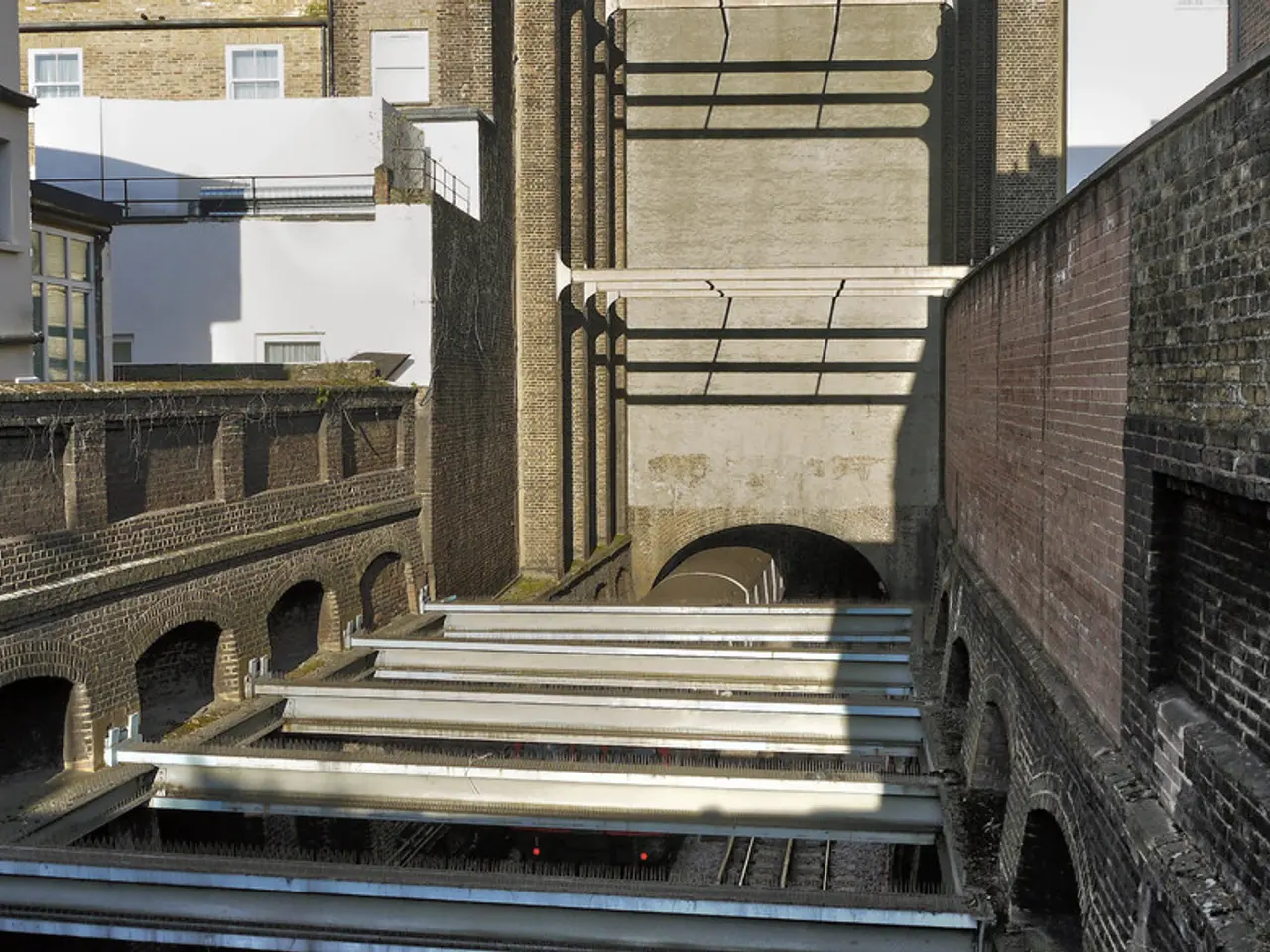Railways in Germany suffer a significant 760 million euros deficit during the initial six months of the year. - German national railway company, Deutsche Bahn, reports a significant earnings deficit of approximately EUR 760 million in the initial half of the year.
Deutsche Bahn (DB), Germany's national railway company, is taking significant steps to address infrastructure issues that have been affecting punctuality and financial stability. The company's strategy revolves around a comprehensive modernization plan known as the "High Performance Network."
In the first half of 2024, punctuality rates improved slightly, with 62.7 percent of trains arriving on time. However, CEO Richard Lutz acknowledged that the network is still considered unreliable and in need of a "fundamental renewal and modernization."
One of the key projects under this plan is the major reconstruction of the Hamburg–Berlin railway corridor, set to begin on August 1, 2025, and last until April 30, 2026. This extensive project involves a full line closure over 278 km, the renovation of more than 180 km of track, the replacement of about 200 switches, and the installation of six new grade-separated junctions to facilitate freight traffic flow. Additionally, upgrades to signaling and control systems, including 28 traffic centers, are planned [2][3].
These upgrades aim to enhance operational flexibility, reduce delays, and improve the overall efficiency of traffic management. Beyond this flagship project, DB InfraGO AG has negotiated a revised, staggered renovation timetable for approximately 4,000 km of heavily used lines, extending through 2036. This timeline adapts to industry capacity and covers key corridors nationwide, balancing modernization needs with minimizing capacity strain during works, which supports punctuality and reliability [4].
Financially, these infrastructure investments are backed by significant government support. This includes a €4.24 billion tranche of equity increase in 2025, plus special infrastructure funds. This financial backing aims to ensure DB can carry out extensive construction with financial stability and long-term operational improvements [1].
The DB group has also seen an increase in demand for rail travel, with 943 million passengers in the first half of the year, marking a 4 percent increase in traffic performance to 41.9 billion passenger kilometers. Despite this growth, the company reported a loss of €760 million in the first half of the year, attributing the revenue shortfall to unreliable infrastructure, additional construction sites, and continued poor punctuality [5].
Staff reduction has occurred within the DB group, and the company has made savings, particularly in administration. Notably, the sale of the logistics subsidiary Schenker has reduced the railway's debt by €10.5 billion, contributing to an overall net financial debt of €22 billion [6].
CEO Richard Lutz emphasized that the DB group's financial stability has improved, and the company is committed to delivering a more reliable and efficient rail service to its passengers. The modernization plan, with its focus on infrastructure improvements and strategic planning, is a testament to this commitment.
[1] Deutsche Bahn. (2022). High Performance Network. Retrieved from https://www.deutschebahn.com/service/unternehmen/investitionen/hochleistungsnetz.html [2] Deutsche Bahn. (2022). Hamburg-Berlin railway corridor modernization. Retrieved from https://www.deutschebahn.com/service/unternehmen/investitionen/bauprojekte/hamburg-berlin.html [3] Deutsche Bahn. (2022). Hamburg-Berlin railway corridor modernization – Major project. Retrieved from https://www.deutschebahn.com/service/unternehmen/investitionen/bauprojekte/hamburg-berlin/projekt.html [4] Deutsche Bahn. (2022). DB InfraGO AG. Retrieved from https://www.deutschebahn.com/service/unternehmen/investitionen/db-infrago-ag.html [5] Deutsche Bahn. (2022). Half-year financial report 2024. Retrieved from https://www.deutschebahn.com/en/company/investors/financial-reporting/half-year-financial-report-2024.html [6] Deutsche Bahn. (2022). DB Group's net financial debt reduced to €22 billion. Retrieved from https://www.deutschebahn.com/en/company/investors/financial-reporting/db-group-s-net-financial-debt-reduced-to-e22-billion.html
The German Railways, DB, announced a significant improvement in punctuality rates for the first half of 2024, despite facing a loss of EUR 760 million in the same period. This improvement can be attributed to Richard Lutz's acknowledgement that the industry requires a fundamental renewal and modernization. In the business of finance, the government is offering substantial support for the railways' infrastructure investments, aiming to ensure financial stability and long-term operational improvements.




